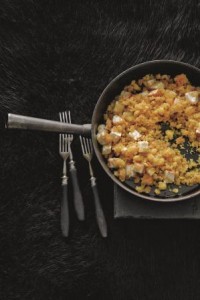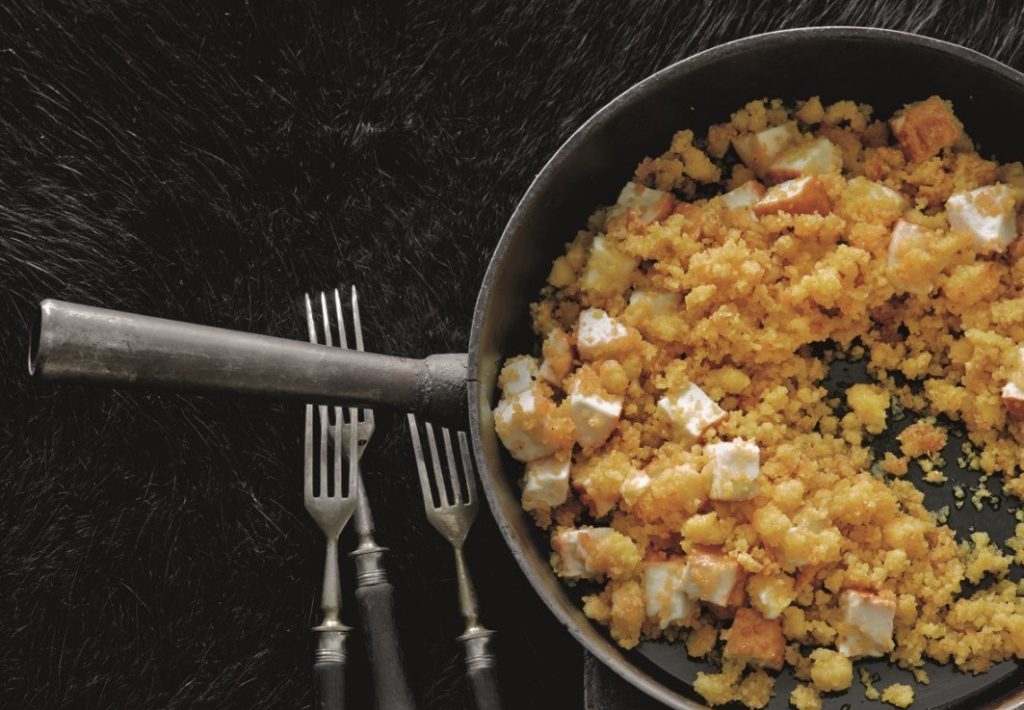Sustainability in nutrition can be supported in a variety of ways, including the use of regional and seasonal products. Fruit and vegetables from the region can usually ripen completely so they have the fullest flavour and, in some cases, contain higher amounts of individual constituents. At the same time buying regional products is good for the environment as less transportation – no air freight – and shorter routes reduce the impact on the climate, as do products which are cultivated in the open air rather than in heated greenhouses. So there are plenty of good reasons not to buy strawberries in winter. Increasing transportation within Germany also involves harmful effects, however. On a practical level, foods are increasingly labelled to indicate Bavarian products or products from your local area, for example.
Try to look out for these regional labels when shopping. By doing so you will also be supporting the regional economy and small and medium-sized farms. If possible, buy directly from farms or at least find out where the farm is located. This increases transparency and trust. Seasonal calendars can support us with planning what to buy and when.
A further advantage is that buying regional products supports the food culture and specialities of different areas. Where the TZM is based – in the south of Germany – the Alpine region with its culinary specialities, for example, offers the chance to enrich menus with traditional dishes and delicacies involving a unique combination of flavours. There is plenty to discover – ranging from old livestock breeds such as Murnau-Werdenfelser cattle and the Alpine Steinschaf, or hempseed, linseed and camelina (gold of pleasure) oil from Bavaria, through to wild plants, special varieties of fruit and vegetables etc. These products can be used to prepare classical dishes and food products which have meanwhile almost been forgotten such as buckwheat and walnut bread, braised brisket of Werdenfelser cattle with fried turnips, and baked ‘Almkäse’ (mountain cheese) slices on chanterelle mushroom ragout. Recipes and ideas from Alpine cuisine are also included, for example, in the cookbook “Das kulinarische Erbe der Alpen – Das Kochbuch” (Culinary Heritage of the Alps – the Cookbook) by Dominik Flammer and Sylvan Müller. Today we would like to share the following recipe from this book with you:
‘Maisribel with Räucherziger’ and wild herb salad
(by Dominik Flammer)
For people living in the Rhine valleys in Vorarlberg, Austria, and in Switzerland, ‘ribel’ is maize which has been cooked the day before it is used, and then fried the next day and stirred in a pan until it forms small clumps. Swiss chef Jeremias Riezler, from Kleinwalsertal in the Canton of Wallis, has rediscovered this tradition and combined it with another Alpine tradition: the ‘Räucherziger’ (a type of smoked cheese). ‘Ziger’ was (and is still today) produced in the Alps primarily from the whey which is left over from traditional cheese making. The ziger was often used as payment for the Alpine cheesemakers and herdsmen who had to deliver cheese and butter to the farmers they worked for. In the past, to preserve the ziger and protect it from flies and maggots, it was often hung in the chimney. This dish can also be made using coarse polenta and smoked ricotta if it is not possible to find original ‘ribelmais’ from Switzerland or Vorarlberg and Alpine Räucherziger cheese at the market.
Ingredients for 4 persons:
1 l milk
1 tsp natural salt
250 g ‘Ribelgries’ (large yellow cornmeal/polenta)
250 g butter
200 g Räucherziger/smoked ricotta
50 g wild garlic, mountain chives or leek greens
200 g mixed wild herbs (e.g. watercress, garden orache (‘mountain spinach’), mountain chives, daisy, ground elder, sorrel, dandelion, cow parsley)
50 g silverskin onions
4 tbsp raspberry vinegar
8 tbsp good olive oil
1 tbsp sugar
1 small pinch of natural salt
Pepper
Tip: In autumn it is also possible to use leek greens to refine the dish. For the herbs, select wild or cultivated herbs which are readily available (e.g. chervil, chives, sorrel, watercress, daisies).
Preparation:
On the day before you wish to make this dish, bring the milk with the salt to the boil in a medium-sized pan and then slowly stir in the ribelgries. Allow it to simmer well whilst stirring with a whisk. Remove it from the heat and place a lid on the pan. Leave it to cool outside overnight.
Cook the butter to form a concentrate as follows: Melt the butter on a medium heat, stirring continuously, until it becomes clear. As soon as the butter starts to brown, remove from heat immediately and pour it through a fine sieve or cloth.
To make the wild herb salad halve the silverskin onions, mix with vinegar, oil, sugar, salt and pepper and leave for approximately half an hour.
Chop the cheese into small cubes, bring to room temperature and fry on all sides in a little concentrated butter until it begins to brown.
Marinate the wild herb salad and serve in a bowl.
Cut the ribelgries (or cornmeal/polenta) from the previous day into small pieces using a palette knife. Then heat the concentrated butter in a large pan and fry the pieces of ribelgries. Make sure that the ribel always stays succulent, add more concentrated butter if necessary. Keep stirring well until small ribeli begin to form. As soon as the ribel starts to brown remove the pan from the heat and mix in the räucherziger by stirring through once. Garnish with finely-chopped wild garlic, mountain chives or leek greens and serve straight away, together with the wild herb salad.
Enjoying preparing and eating this dish!
Recipe taken from the book: “Das kulinarische Erbe der Alpen – Das Kochbuch”, Dominik Flammer & Sylvan Müller, AT-Verlag, Aarau und München, 2013. The recipe comes from the kitchen of Jeremias Riezler from the Walserstube in Riezlern, in Kleinwalsertal.
PS: Next time you are visit the Alps perhaps you will get the chance to stop off at one of the farm shops or regional specialist stores and discover some more new cooking ideas.
